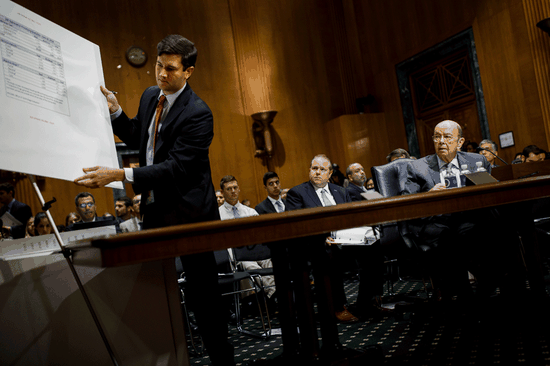
The US Senate Finance Committee holds a hearing on steel import tariffs on June 20 in Washington. (Photo/Xinhua) Washington hearings told of risk to children, threat to supply chains Each of those who testified told a different story, but with a similar theme. They said it was simply impossible to shift manufacturing back to the United States; they had invested time and resources in developing a supply chain using Chinese capacity; and imposing tariffs would not advance the goals of U.S. President Donald Trump's administration. The U.S. business executives were testifying last week at hearings on the proposed 25 percent tariffs the U.S. says it will impose on $200 billion worth of Chinese imports. At the hearings held by the U.S. Trade Representative's Office, which were due to conclude on Monday, those who testified presented a long list of cost-effective products sourced from China that would be off-limits to numerous U.S. consumers if the duties took effect. One witness after another pleaded for the Trump administration not to raise tariffs on more Chinese goods, saying that the escalating trade war between the world's two largest economies would risk the safety of U.S. children and destroy many domestic businesses while disrupting supply chains. "We strongly oppose the proposed tariffs, which will disrupt business models and cause lasting economic harm to American sports companies and to millions of American consumers who look to play sports and be active every day," said Tom Cove, president and CEO of the Sports & Fitness Industry Association. Cove was one of at least 360 industrial company representatives and business executives who descended on Washington to attend the hearings from Aug 20 to Monday. The demand to testify was so high that the number of days scheduled for the hearings had to be doubled. By Thursday, the U.S. had imposed two rounds of 25 percent tariffs on $50 billion of Chinese goods and was threatening to levy the same tariffs on $200 billion worth of additional Chinese goods, ranging from car tires to baseball gloves. At the hearings at the U.S. International Trade Commission, witnesses have five minutes to present their case before answering questions from a government panel that includes the U.S. Trade Representative Office, the state, labor, homeland security and commerce departments and some other organizations. Cove said his association, which has more than 300 member companies, has taken steps to diversify sourcing. "But it can take years to find alternative production options, train the workforce, develop necessary infrastructure and build, or retrofit, a manufacturing facility," he testified. "China remains a vital and not easily replaceable link in our industry's supply chain." |
Powered by Discuz! X3.4
© 2001-2013 Comsenz Inc.